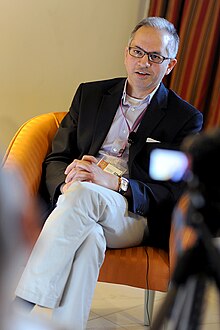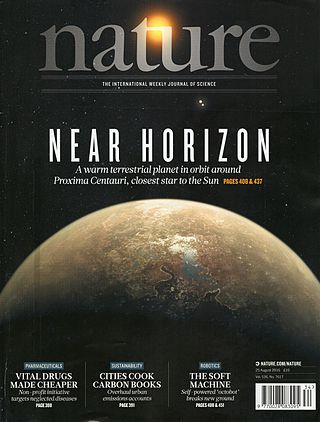
Nature is a British weekly scientific journal founded and based in London, England. As a multidisciplinary publication, Nature features peer-reviewed research from a variety of academic disciplines, mainly in science and technology. It has core editorial offices across the United States, continental Europe, and Asia under the international scientific publishing company Springer Nature. Nature was one of the world's most cited scientific journals by the Science Edition of the 2022 Journal Citation Reports, making it one of the world's most-read and most prestigious academic journals. As of 2012, it claimed an online readership of about three million unique readers per month.

Sir John Cowdery Kendrew, was an English biochemist, crystallographer, and science administrator. Kendrew shared the 1962 Nobel Prize in Chemistry with Max Perutz, for their work at the Cavendish Laboratory to investigate the structure of haem-containing proteins.

Susan Janet Watts is a science journalist. She was science editor of the BBC's Newsnight programme, from January 1995 to November 2013.

Ziauddin Sardar is a British-Pakistani scholar, award-winning writer, cultural critic and public intellectual who specialises in Muslim thought, the future of Islam, futurology and science and cultural relations. The author and editor of more than 50 books, Prospect magazine has named him as one of Britain's top 100 public intellectuals and The Independent newspaper calls him: 'Britain's own Muslim polymath'.
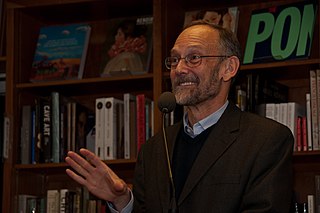
Harold James McGee is an American author who writes about the chemistry and history of food science and cooking. He is best known for his seminal book On Food and Cooking: The Science and Lore of the Kitchen first published in 1984 and revised in 2004.
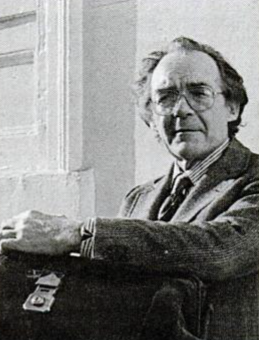
Sir John Royden Maddox, FRS was a Welsh theoretical chemist, physicist, and science writer. He was an editor of Nature for 22 years, from 1966 to 1973 and 1980 to 1995.
Jonathan Dallas George Jones is a senior scientist at the Sainsbury Laboratory and a professor at the University of East Anglia using molecular and genetic approaches to study disease resistance in plants.
Abu Izzadeen is a British spokesman for Al Ghurabaa, a British Muslim organisation banned under the Terrorism Act 2006 for the glorification of terrorism. He was convicted on charges of terrorist fund-raising and inciting terrorism overseas on 17 April 2008 and sentenced to four and a half years in jail. He was released in May 2009, after serving three and a half years, including time on remand. In January 2016, he was sentenced to two years imprisonment for breaching the Terrorism Act by leaving the UK illegally.

Nick Lane is a British biochemist and writer. He is a professor in evolutionary biochemistry at University College London. He has published five books to date which have won several awards.
Timothy Hugh Clutton-Brock is a British zoologist known for his comparative studies of the behavioural ecology of mammals, particularly red deer and meerkats.
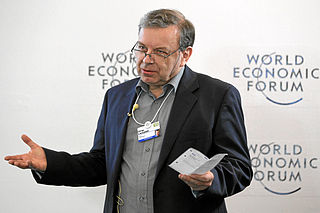
Sir Philip Henry Montgomery Campbell is a British astrophysicist. He served as editor-in-chief of the peer reviewed scientific journal Nature from 1995 to 2018. From 2018 he was the Editor-in-Chief of the publishing company Springer Nature until his retirement in May 2023.
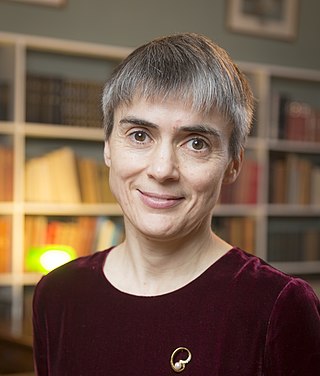
Dame Henrietta Miriam Ottoline Leyser is a British plant biologist and Regius Professor of Botany at the University of Cambridge, Chief Executive Officer of UK Research and Innovation (UKRI) and the Sainsbury Laboratory, Cambridge.
The International Human Frontier Science Program Organization (HFSPO) is a non-profit organization, based in Strasbourg, France, that funds basic research in life sciences. The organization implements the Human Frontier Science Program (HFSP) and is supported by 14 countries and the European Commission. Shigekazu Nagata is the HFSPO President and Chair of the Board of Trustees since 2018.
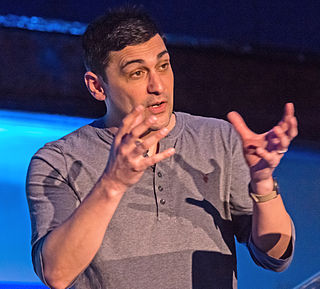
Adam David Rutherford is a British geneticist and science populariser. He was an audio-visual content editor for the journal Nature for a decade, and is a frequent contributor to the newspaper The Guardian. He hosts the BBC Radio 4 programmes Inside Science and The Curious Cases of Rutherford and Fry; has produced several science documentaries; and has published books related to genetics and the origin of life.

David John Beerling is the Director of the Leverhulme Centre for Climate change mitigation and Sorby Professor of Natural Sciences in the Department of Animal and Plant Sciences (APS) at the University of Sheffield, UK. He is also Editor-in-Chief of the Royal Society journal Biology Letters.

G. Marius Clore MAE, FRSC, FRS is a British-born, Anglo-American molecular biophysicist and structural biologist. He was born in London, U.K. and is a dual U.S./U.K. Citizen. He is a Member of the National Academy of Sciences, a Fellow of the Royal Society, a NIH Distinguished Investigator, and the Chief of the Molecular and Structural Biophysics Section in the Laboratory of Chemical Physics of the National Institute of Diabetes and Digestive and Kidney Diseases at the U.S. National Institutes of Health. He is known for his foundational work in three-dimensional protein and nucleic acid structure determination by biomolecular NMR spectroscopy, for advancing experimental approaches to the study of large macromolecules and their complexes by NMR, and for developing NMR-based methods to study rare conformational states in protein-nucleic acid and protein-protein recognition. Clore's discovery of previously undetectable, functionally significant, rare transient states of macromolecules has yielded fundamental new insights into the mechanisms of important biological processes, and in particular the significance of weak interactions and the mechanisms whereby the opposing constraints of speed and specificity are optimized. Further, Clore's work opens up a new era of pharmacology and drug design as it is now possible to target structures and conformations that have been heretofore unseen.
Katherine Elizabeth Jones is a British biodiversity scientist, with a special interest in bats. She is Professor of Ecology and Biodiversity, and Director of the Biodiversity Modelling Research Group, at University College London. She is a past chair of the Bat Conservation Trust.

Mike Galsworthy is the co-founder of Scientists for EU and Healthier IN the EU and a media commentator about the effects of Brexit on the scientific community in the United Kingdom, and is Chair of the European Movement UK. He is currently a visiting researcher at the London School of Hygiene and Tropical Medicine (LSHTM) and was previously Senior Research Associate in the Department of Applied Health Research, University College London (UCL).
Nature's 10 is an annual listicle of ten "people who mattered" in science, produced by the scientific journal Nature. Nominees have made a significant impact in science either for good or for bad. Reporters and editorial staff at Nature judge nominees to have had "a significant impact on the world, or their position in the world may have had an important impact on science". Short biographical profiles describe the people behind some of the year's most important discoveries and events. Alongside the ten, five "ones to watch" for the following year are also listed.
